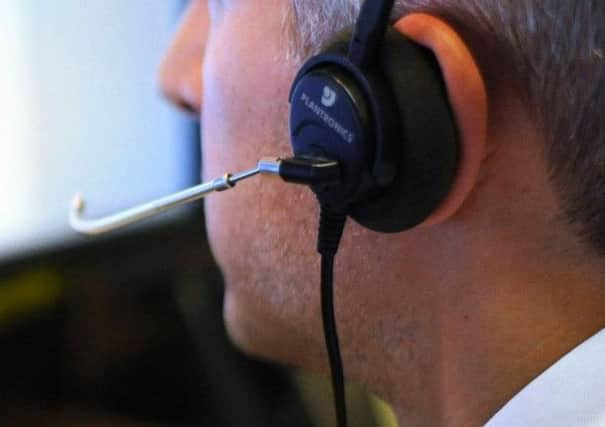Tough new crackdown on cold call menace


If companies withhold their identities and persistently break the rules they can expect to face fines from the Information Commissioner’s Office (ICO).
The minister responsible for data protection Baroness Neville-Rolfe - who was expected to confirm today that the change will kick in on May 16 - said nuisance calls particularly harm the elderly.
Advertisement
Hide AdAdvertisement
Hide AdFirms registered in the UK, even if their call centres are abroad, will have to provide their phone numbers when making unsolicited calls once the change in legislation comes into force.
It will make it easier for frustrated recipients to note down the numbers and report them.
The Government said the amendment would also ensure the ICO could investigate and take enforcement action against callers who carried on deliberately breaking the rules.
Companies can risk fines of up to £2m. from Ofcom and a further £500,000 from the ICO if they continue to bombard consumers with unwanted calls.
Advertisement
Hide AdAdvertisement
Hide AdBaroness Neville-Rolfe said: “Nuisance calls are incredibly intrusive and can cause significant harm to elderly and vulnerable members of society.
“Government is committed to tackling this problem, which is why we are making it easier for consumers to report companies by forcing them to display their phone numbers.
“We’re sending a clear message to rogue direct marketing companies. Nuisance calls are unacceptable and we will not hesitate to take action against the companies behind them.”
ICO head of enforcement Steve Eckersley said any change that made it easier for the office to track down problem companies would reduce the number of calls.
Advertisement
Hide AdAdvertisement
Hide AdHe said: “We do investigate unscrupulous companies who hide their identities, and we can track them down, but it certainly makes our job more difficult. And when people are able to identify the number behind the call they’ve received, they’re more likely to complain to us and that means we’re more able to take action.”
Which? ran a campaign called Calling Time on Nuisance Calls, and a tool on the consumer group’s website allows people to pass on nuisance numbers to the regulators.
Executive director Richard Lloyd said: “This is another important victory in the fight against nuisance calls. With marketing firms now being forced to display their numbers when making calls, it will make it much easier for people to report them, and enforcement action to be taken when companies break the law.”